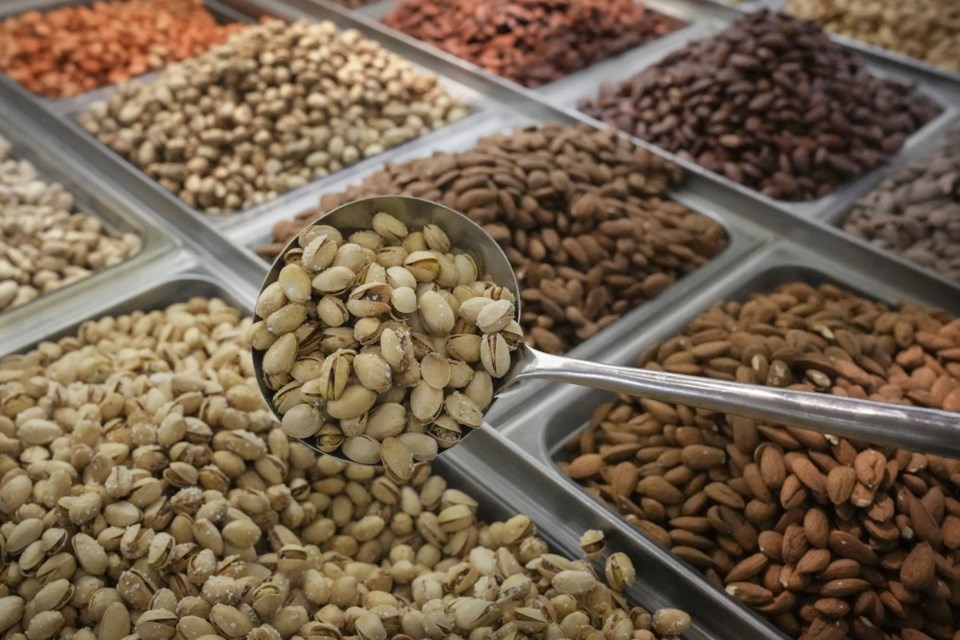TORONTO — Pistachios have been the subject of a series of recalls linked to a salmonella outbreak, and while some health officials say that doesn’t mean people should avoid all pistachio products, others say toss the nut.
Four brands of pistachios and pistachio-containing products have been recalled over the past several weeks by the Canadian Food Inspection Agency because of a possible salmonella contamination.
That includes Habibi brand pistachio kernels, Al Mokhtar Food Centre pistachios, Dubai brand milk chocolate bars and Andalos brand baklava.
The Public Health Agency of Canada says 52 have been sickened and 10 landed in hospital after eating contaminated pistachios and baked goods containing the nut. That's only a fraction of the illnesses, as many go unreported, they said.
It isn’t always easy to know what brand of pistachios are on top of a dessert or chopped on a salad, said April Hexemer, the public health agency’s director of outbreak management.
“Some of the products that people consumed are baked goods that have pistachios sort of sprinkled on top. You wouldn't know what brand of pistachio that would be. But it's all part of the investigation,” she said.
So far they've recalled baklava pastries containing pistachios served at a bakery in Montreal, and Dubai chocolate oozing with pistachio cream and crunchy knafeh pastry pieces, sold online across Canada.
“There could be other products identified. It's too soon to know.”
She said at this point in time there is no indication that’s the case.
While the recalls are only for specific brands of pistachios, Lawrence Goodridge, a professor and Canada Research Chair in foodborne pathogen dynamics at the University of Guelph, said it's safer to ditch all pistachios.
"My advice is, do not consume any products that contain pistachios for the next little while until the outbreak is declared over by PHAC," he said.
That doesn't mean pistachios across the board are contaminated, but Goodridge said, "How is somebody supposed to know where those pistachios came from?"
Hexemer said if you aren’t sure whether bulk pistachios stored in a pantry are affected, reach out to the place where they were purchased.
She also said commercial kitchens should check the product codes and compare them to the recall warnings.
“The key message is to throw out the recalled product and not to eat it, use it, serve it, sell it, or distribute it,” she said.
The Public Health Agency of Canada says a salmonella infection can affect anyone exposed to a contaminated food product, and says not to cook food for other people if you've been diagnosed.
Salmonella can spread from an infected person who has diarrhea, for instance through unwashed hands.
It can also spread several days or weeks after a person is infected, even if they don't have symptoms, according to the public health notice.
This report by The Canadian Press was first published Aug. 9, 2025.
Canadian Press health coverage receives support through a partnership with the Canadian Medical Association. CP is solely responsible for this content.
Hannah Alberga, The Canadian Press


